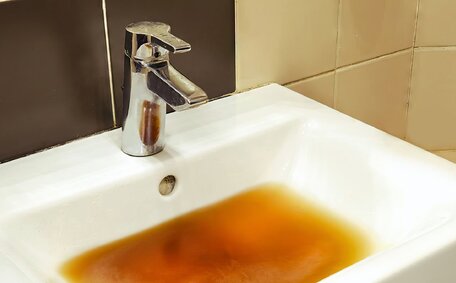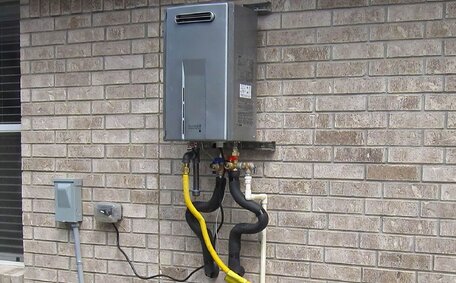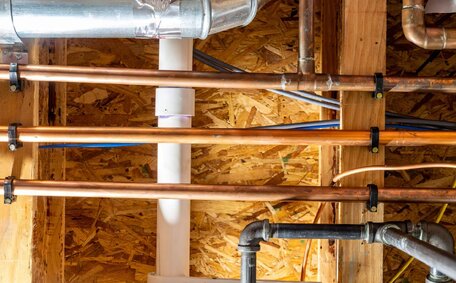Understanding the dangers of gas leaks
The convenience and relative cleanliness of natural gas as a fuel source must not overshadow the safety risks posed by potential gas leaks. A gas leak in your home can pose significant health and safety hazards, with consequential impacts on climate change. Gas is imbued with odorants such as ethyl mercaptan for leak detection purposes, yet remaining alert to potential dangers in Vaucluse, Sydney, is still crucial.
Gas exposure can lead to symptoms similar to those caused by carbon monoxide poisoning and result in oxygen depletion indoors, reducing air quality and letting harmful pollutants like carbon monoxide build up. Prolonged exposure to contaminants such as carbon monoxide from gas leaks can cause severe health problems, including neurological complications, organ damage, and gas poisoning symptoms.
If you detect a gas odour, like rotten eggs, or hear hissing from pipes, evacuate immediately and contact a professional if you experience symptoms. Quick action is vital to maintain your wellbeing.
How to recognize the signs of a gas leak
Several unmistakable signs indicate a gas leak in your house, posing a direct threat to your living space.
The most obvious sign of gas exposure your home may encounter is a pungent gas smell, reminiscent of rotten eggs, signalling the need for precaution. You might additionally discern a distinct hissing sound from your gas stoves or piping should there be any gas escaping.
A visual inspection in areas prone to natural gas leaks may reveal signs of damage to gas lines. Damaged, loose, or corroded fittings due to faulty gas pipeline infrastructure may indicate there’s a leak situation, just as disturbances in the soil near your gas line can as well. Bubbling water, soil spurting from a hole in the ground, or barren vegetation could suggest a leak suspected in subterranean gas lines.
If you detect gas issues alongside symptoms of exposure, immediately cease using open flames or electrical devices, turn off the gas supply, evacuate, and call for professional assistance from a safe location. In the event of a suspected gas leak, our licensed professionals will swiftly assess the situation, confirm the presence of a leak, and address it to ensure your family’s safety.
Identifying gas leak symptoms
Exposure emanating from gas appliances, potentially signalling a natural gas leak in your dwelling, could induce a range of alarming signs and symptoms, urging swift medical intervention. Headaches, dizziness, and nausea are common signs and When gas heaters release combustion products, those affected might experience symptoms associated with a gas leak. Prolonged exposure to gas can cause memory lapses, coordination issues, and lasting neurological damage due to carbon monoxide infiltrating the bloodstream.
It is crucial to step outside your home and seek fresh air right away if you encounter any of these symptoms of natural gas exposure, regardless of the severity of your symptoms. If you experience symptoms that may relate to gas exposure, seek medical advice immediately to understand the implications and necessary actions.
Be aware that gas exposure can quickly lead to carbon monoxide poisoning, with risks of unconsciousness or fatality, underscoring the need for an immediate response.
Do not attempt to fix or assess the issue yourself, and avoid using any appliances, which could inadvertently ignite a fire. Shut off the gas at the main valve, and let our licensed professionals use advanced techniques to detect and address the gas leak, preserving indoor safety. Addressing your concerns swiftly, we ensure the safe use of natural gas without the risk of dangerous leaks leading to severe health outcomes.
Taking action during a gas leak
If you detect signs of a gas leak in your home, follow these gas safety tips to help keep your household safe, taking swift action to safeguard your health and your loved ones. Here are some key actions and safety tips to follow in the event of a gas leak:
- Avoid any naked flames, sparks or sources of ignition. Do not use gas lights or appliances, and avoid turning switches on or off, as they can create sparks.
- Open doors and windows to dissipate any small amounts of gas concentrations immediately. Enhanced ventilation can improve indoor air quality by reducing carbon monoxide levels, thereby mitigating poisonous effects.
- Evacuate everyone from the affected rooms or your house and leave the area immediately, assembling in a safe zone, preferably upwind and close to fresh air to avoid inhalation of fumes.
- Call 000 to alert the fire department if you are still on the premises and can smell the indicative odour of gas. Immediately after evacuation, contact your gas provider and Vaucluse Plumbing on 1300 349 338 to report the critical leak.
- Do not re-enter the property until our licenced technicians confirm it is safe to do so after finding and fixing the gas leak.
Taking swift action to leave the area and alert emergency services reduces health risks from gas leaks—if you experience headaches, nausea, or dizziness, our expertise in detecting and resolving gas issues can address these concerns.
Calling the professionals
Promptly seeking assistance from a licensed plumber is crucial when addressing potential leaks in gas appliances to avoid the risks of gas poisoning. Avoid DIY repairs as they risk causing sparks that could lead to explosions and worsen gas leaks. Our Vaucluse Plumbing experts have the proper tools and training which can accurately detect leaks and resolve issues safely.
In line with school public health advice, we recommend installing detectors linked to alarms to alert households of any dangerous leaks from unflued heaters requiring evacuation. Our technicians can help you maintain natural gas safety for your family and home, including advising on appropriate detectors for unflued gas appliances during routine maintenance. Upgrading old, faulty appliances also mitigates leak risks.
Consulting experts quickly can prevent even minor gas leaks in your plumbing, promoting safety and enabling the secure use of natural gas through preventive strategies. our expert team takes health and safety dearly, so never hesitate to reach out to our 24/7 emergency service on 1300 349 338 if you encounter any disturbing symptoms of a natural occurrence or infrastructure damage.
The health impacts of gas exposure
Encountering symptoms from the use of heating appliances where natural gas can trigger immediate health concerns like headaches, queasiness, disorientation, and respiratory challenges. Inhalation of toxic fumes from gas leaks can result in oxygen deficiency and accumulation of dangerous gases like carbon monoxide, exacerbating symptoms over time.
Severe short-term exposure may lead to unconsciousness, organ damage, and a variety of health problems, even death if exposed to high levels of gas concentration. It’s important to seek medical help promptly in such cases. Long-term exposure escalates risks to neurological, cardiovascular, and respiratory systems.
The impacts are worse if carbon monoxide which has entered the bloodstream during the leak. Continuous exposure may lead to persistent memory and coordination problems, visual disturbances, chronic fatigue, mental health impact, and lasting damage to vital organs like the heart and liver.
On the other hand, studies link long-term gas exposure to certain types of cancer. Leaking gas infrastructure permits the incursion of harmful compounds such as benzene into dwellings, which can elevate cancer risks. Talk to your doctor about check-ups to identify any lasting impacts requiring treatment after gas leak exposure.
Short-term effects
Gas exposure can immediately cause symptoms such as headaches, nausea, dizziness, and breathing difficulties.
Long-term effects
This may lead to ongoing issues like memory problems and skin blisters or permanent treatment after gas leak exposure.
Preventing gas leaks
Proactive maintenance and safety checks by licensed professionals are essential to preventing dangerous gas leaks. Proper installation and maintenance of gas appliances, fixtures, and infrastructure are critical for safety, as is the correct storage of flammable materials away from gas meters and pipes.
Involving our expert plumbers for routine maintenance and inspections minimises gas leak risks through preventative measures. We take health and safety seriously – never hesitate to call our 24/7 emergency line on 1300 349 338 if you notice any concerning signs of gas exposure or infrastructure damage.
Regular maintenance
Regular maintenance by a qualified gas fitter is critical to prevent leaks from cooking appliances, which could impact your living environment. Licenced gas fitters recommend inspecting your appliances and gas infrastructure annually to check pipe condition, ensure adequate ventilation and aid in detecting gas leaks.
Upgrading ageing, faulty equipment can also reduce leakage risks, as do installations of safety devices like automatic shut-off valves and gas detectors linked to alarms. Technicians can recommend the best detector models and installation spots, especially near your hot water system, to address concerns about gas leaks in your home.
Store volatile substances such as oil, petrol, or paint away from gas appliances to reduce the flammable hazard risk in the event of a leak. By scheduling periodic inspections with our expert team at Vaucluse Plumbing, we can catch leak issues early and advise on preventative upgrades for your safety and peace of mind.
Safety measures
There are several key safety measures to take to guard against the dangers of natural gas leaks:
- Install carbon monoxide detectors – CO is odourless and toxic, so detectors linked to alarms are crucial for alerting households to dangerous buildup, as natural gas also poses risks without proper detection.
- Ensure your gas appliances have adequate ventilation—sufficient air circulation helps dilute gas concentrations during a leak, protecting your home from associated risks. Technicians can offer advice on ventilation best practices for those who use natural in their homes, to prevent a gas leak.
- Conduct regular inspections and maintenance – verifying pipeline integrity, pilot light functionality, and the operability can occur with the operability of devices ensuring efficient gas use forestalls dire malfunctions that could release gas into your abode. Upgrading old gas appliances and faulty equipment also reduces risks.
- Know what do gas leak scenarios require when you detect a leak – Being able to recognise the rotten egg smell that utility companies add to gas, along with hissing sounds from pipes, allows for a prompt response.
- Know what to do when a gas leak threatens your home – Evacuate immediately and call licenced specialists like Vaucluse Plumbing to resolve issues safely, avoiding DIY fixes.
Prevention is key to mitigating hazards from the utilisation of natural gas in homes and buildings. By involving reliable plumbers for routine maintenance and embracing school public guidelines when leaks arise, we can guard against carbon monoxide poisoning or explosions that jeopardise health and safety.






